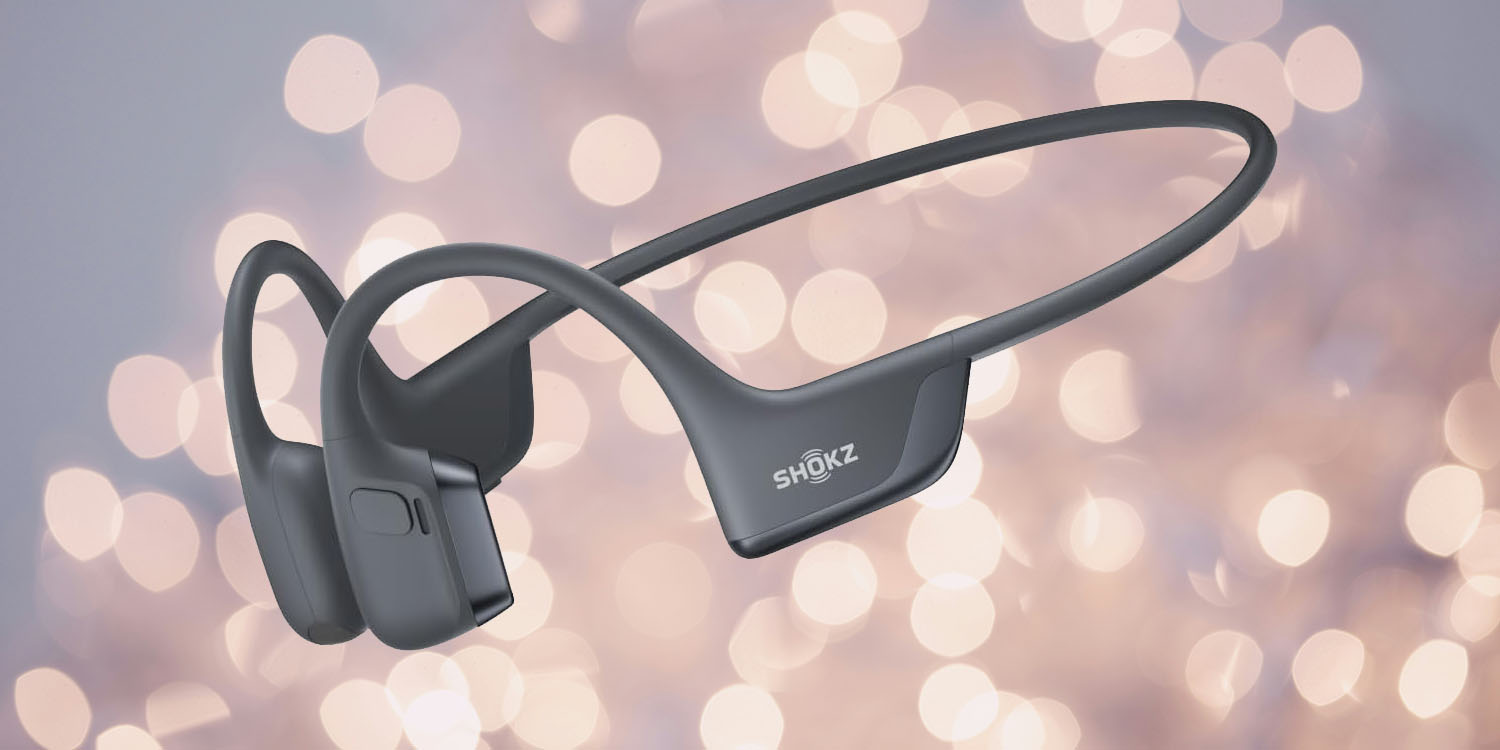
I’ve long used Shokz bone-conduction wireless headphones as my go-to for voice and video calls, mostly because they are so comfortable I often forget I’m wearing them.
I’ve been using the OpenComm model for a couple of years now, but switched to the new OpenRun Pro 2 for a couple of reasons – one of which was fixing my only real complaint …
Before we get into comparisons, though, let’s start at the beginning …
How bone-conduction headphones work
This is a technology that’s been around for a long time, but it kind of still feels like magic to me.
Traditional headphones might be in-ear, on-ear, or over-ear, but they all work in the same way. A driver moves back-and-forth, and that creates soundwaves that travel through the ear canal. Those waves cause your ear-drum to move, and the brain hears that as sound.
Bone-conduction headphones work in a completely different way. They vibrate against the bones in your cheek or upper jaw, and those vibrations are picked up by your inner ear, or cochlea. Your ear canal isn’t involved.
It’s worth noting that there’s a quality hit compared to conventional headphones. I would never use bone-conduction headphones to listen to music, and although this model has a supplementary air conduction speaker for bass, that still doesn’t cut it. If you need one pair of headphones to do everything, then these aren’t for you.
But if you’re a runner or cyclist – or you make a lot of voice calls, or listen to a lot of spoken-word content like podcasts – then bone-conduction headphones have two significant benefits.
The two advantages
First, they don’t obstruct your ears, so you can still hear ambient sounds. Sure, you can use ANC headphones with transparency on, but that’s nothing like the same experience. This makes headphones like Shokz perfect for running and cycling, where you need to be able to clearly hear traffic.
Second, comfort. Both in-ear and on-ear headphones can get uncomfortable when worn for extended periods, and over-ear ones can get hot. As I said earlier, Shokz are so comfortable I have literally put them on to make a call and a couple of hours later realized I’m still wearing them.
The OpenRun Pro 2 finally gets USB-C charging
Shokz has long used its own magnetic charger tips, which works very much like MagSafe on the Mac. Simply hold the charging tip somewhere near the headphone port and it snaps into place, and it likewise detaches should someone snag the cord. This was also true of the first-gen OpenRun Pro model.
I do like magnetic charging, but not at the expense of having to carry a proprietary cable when travelling. I kind of solved it by fitting a third-party adapter to a USB-C cable, but it still wasn’t ideal.
With the OpenRun Pro 2, however, the old charging port has been swapped for a USB-C one.
Good quality speech without a mic boom
When making voice calls, the OpenComm was the model I recommended because it had a microphone boom, and made a huge difference to the clarity of your speech for the person on the other end of the call. This was particularly noticeable when using them outdoors when there was wind.
However, I have to say that speech clarity with these is almost as good as the OpenComm without the mic boom – including dealing with wind-noise. Shokz says this is due to – what else, these days – AI audio processing.
You do have to counter the instinctive tendency to talk more loudly because the mic feels a long way from your face, but when you speak naturally, they work really well.
Pricing and conclusions
As I mentioned, if you’re a ‘one pair of headphones for everything’ person, then move on, nothing to see here. No bone-conduction headphones can match the audio quality you’ll get from conventional headphones when it comes to listening to music, whether or not assisted by a near-ear bass speaker.
But if you’re a runner or a cyclist, or you make enough voice calls or listen to enough podcasts to justify the $179.95 price, then I can highly recommend them.
Shokz OpenRun Pro 2 bone-conduction headphones are available from the company’s website for $179.95 with free shipping and a two-year warranty. Image: 9to5Mac composite of images from Shokz and Alexander Grey on Unsplash.
FTC: We use income earning auto affiliate links. More.





Comments